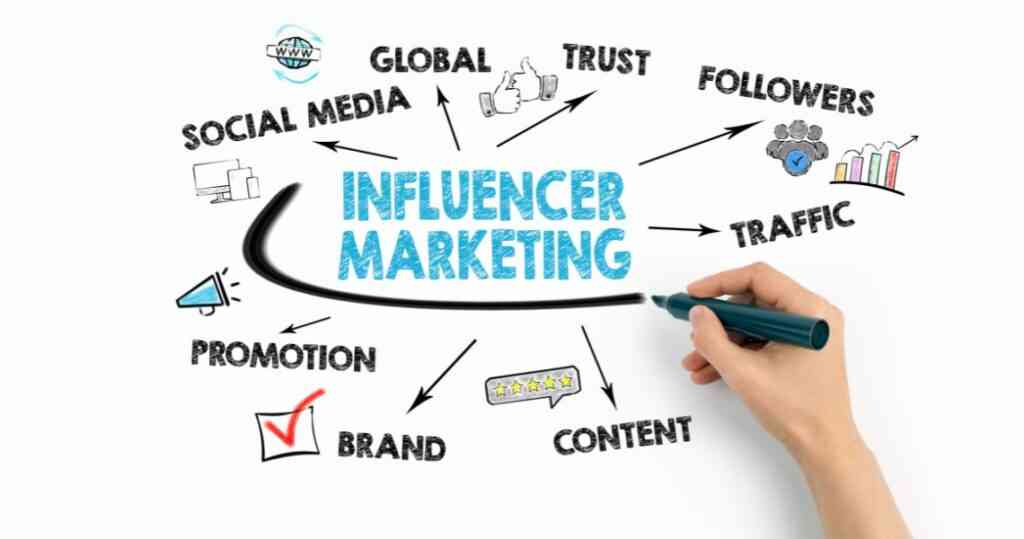
Influencer marketing has become an essential strategy for brands looking to expand their reach, especially in the ever-evolving digital era.
With the rise of social media platforms, influencers have gained prominence as trusted voices among consumers.
However, influencer marketing comes with both opportunities and challenges that brands must navigate to achieve maximum success.
Scholars have defined influencer marketing in different ways, highlighting its impact on brand communication.
According to Brown and Hayes (2008), influencer marketing is “a form of marketing that identifies and targets individuals with influence over potential buyers and uses them to promote products or services.” Similarly, Freberg et al (2011) defined influencers as “third-party endorsers who shape audience attitudes through blogs, tweets and other forms of social media”.
These definitions highlight the role of influencers as key mediators between brands and consumers, leveraging on their credibility and reach to drive engagement.
In recent years, influencer marketing has gained traction in Zimbabwe as businesses realise the power of digital engagement. Prominent influencers such as Khama Billiat, Enzo Ishall, Mai Chisamba, Madam Boss, Shadaya, Nijo, Patricia and Greatman, among others, have worked with renowned brands.
For instance, Kudzai Violet Gwara, popularly known as KVG, is a brand ambassador or is involved in marketing endeavours for brands such as O’mari, Chicken Inn, Union Hardware and ZimGold. These brands are leveraging on her content and large following on social media platforms to drive brand visibility. Similarly, Comic Pastor has used his humour to promote brands like Steward Bank, engaging audiences in a relatable and entertaining manner.
- Getting the best out of influencer marketing
Keep Reading
One of the key advantages of influencer marketing is its cost-effectiveness. Compared to traditional advertising methods such as television and billboard advertising, influencer marketing offers brands an affordable way to reach target audiences.
In Zimbabwe, where marketing budgets are often constrained, influencers provide an efficient channel for brand promotion.
Influencer marketing fosters a higher level of trust and engagement. Consumers tend to believe in recommendations made by people they admire or look up to, making them more likely to try a product or service. This is particularly useful in sectors such as fashion, health and beauty and food, where word-of-mouth marketing significantly influences purchasing decisions.
Furthermore, influencer marketing allows for targeted advertising. Brands can collaborate with influencers who have a following that aligns with their target demographic, ensuring that marketing efforts are more focused and effective.
For example, a local fashion brand can work with style influencers such as Pokello to reach a fashion-conscious audience.
Despite its benefits, influencer marketing also has challenges. One of the biggest drawbacks is lack of regulation in the influencer space. Many influencers promote products without clear disclosures, which can lead to misleading advertising and consumer distrust.
In some cases, influencers endorse brands they do not genuinely believe in, which can damage both their credibility and the brand’s reputation.
Another challenge is the digital divide. While influencer marketing thrives on social media, not all Zimbabweans have consistent internet access. High data costs and limited connectivity in rural areas mean that influencer campaigns often fail to reach a significant portion of the population. This makes it difficult for brands to achieve nationwide impact through influencer marketing alone.
Moreover, the unpredictability of influencers poses a risk for brands. Some influencers engage in controversial behaviour or lose public favour, which can negatively affect the brands they associate with. For instance, past controversies surrounding some influencers have led to brands severing ties with them to protect their image.
To get the best out of influencer marketing, businesses should adopt a strategic approach.
First, brands should carefully vet influencers to ensure they align with their values and have genuine engagement with their audience. It is not just about follower count, authenticity and credibility matter more.
Secondly, organisations should establish clear contracts with influencers to ensure transparency and accountability. This includes agreements on content deliverables, disclosure requirements and the expected conduct during the partnership.
Lastly, brands should integrate influencer marketing with other forms of digital marketing. Relying solely on influencers may limit impact, but combining influencer efforts with social media advertising, search engine marketing and offline promotions can maximise reach and effectiveness.
Influencer marketing is a powerful tool that can help Zimbabwean businesses to grow their reach, increase brand awareness and drive sales.
However, it must be approached strategically to avoid pitfalls such as misleading endorsements and limited audience reach. By selecting the right influencers, ensuring transparency and integrating influencer efforts into a broader marketing strategy, businesses can harness the full potential of influencer marketing in Zimbabwe’s unique economic and digital landscape.
- Cliff Chiduku is the director of marketing, information and public relations at Manicaland State University of Applied Sciences in Mutare. He writes here in his personal capacity. He can be contacted on cchiduku@gmail.com or call/app +263775716517.










